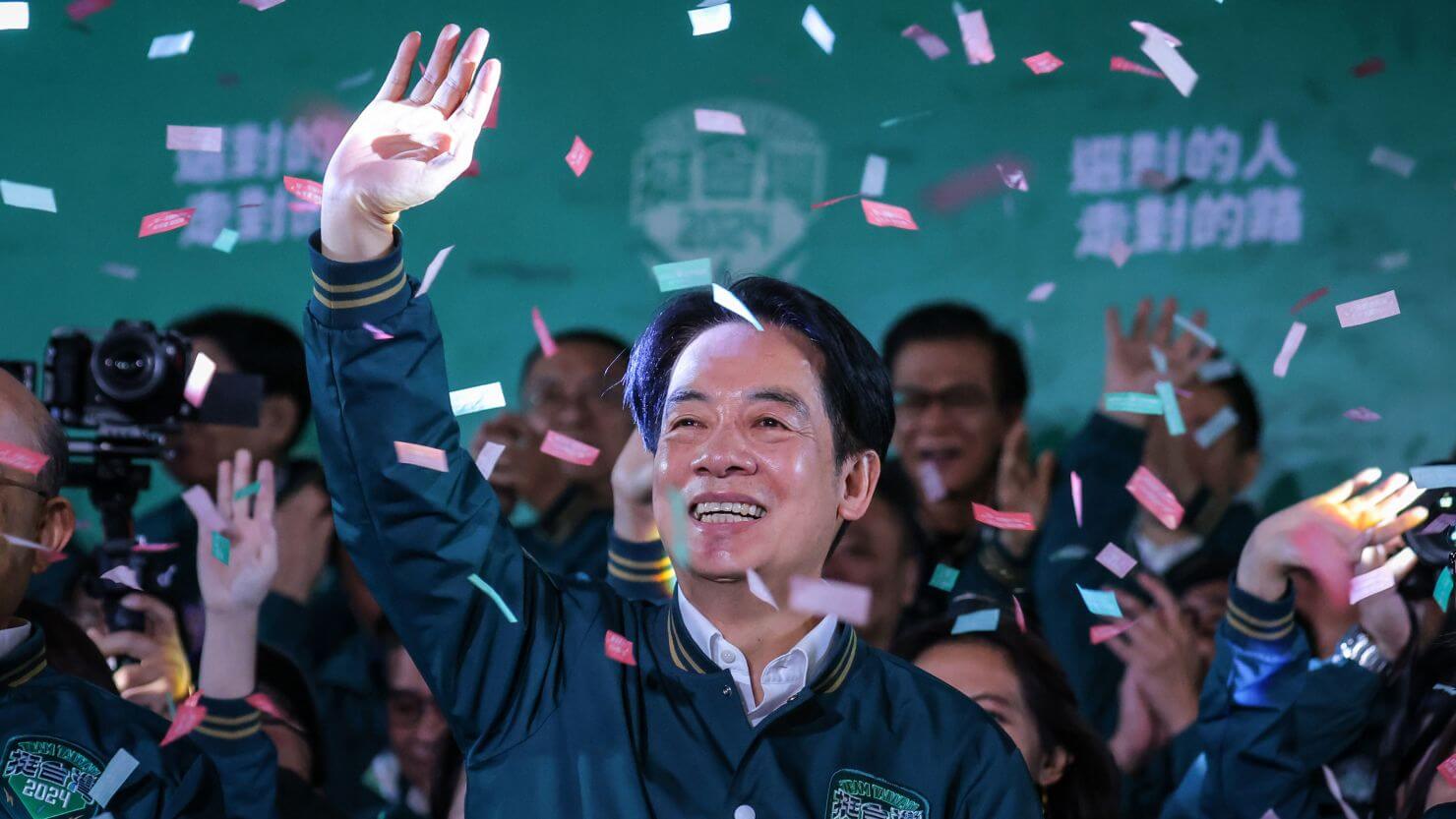On 13 January, Taiwan’s Premier Lai Ching-te of the Democratic Progressive Party (DPP) won the self-ruled island’s presidential election by winning more than 40% of the vote and defeating his opponents — Hou Yu-ih of the Kuomintang (KMT) and Ko Wen-je of the Taiwan People’s Party (TPP) — in the process. The DPP’s victory is largely being viewed as the public’s endorsement of the party’s position, that is, to maintain Taiwan’s political independence.
The win is also being perceived as a blow to China, which claims Taiwan as its own territory, as both the KMT and TPP had vowed to strengthen engagement with Beijing. Calling his win a “victory for the community of democracies,” Lai asserted that Taiwan rejects authoritarianism and stands on the side of democracy, a clear indication that he prioritises strengthening relations with the West and rejects China’s claims over Taiwan.
Nevertheless, to fully grasp Lai’s present stance and future trajectory during his term, it is vital to consider his background and how it shaped him.
Early Life
The 64-year-old Harvard graduate began his journey into politics after earning a medical degree from the National Taiwan University, where he specialised in gynaecology and obstetrics. In 2004, Lai switched from the KMT to join the DPP. His decision to join the DPP was influenced by a growing alignment with the party’s values and policy positions, particularly on issues related to Taiwanese identity, social justice, and democracy.
“My defining moment came as China’s military adventurism [...] threatened our shores with live fire exercises and missiles,” he wrote in an op-ed for Wall Street Journal last July. “I decided I had a duty to participate in Taiwan’s democracy and help protect this fledgling experiment from those who wished it harm.”
This transition ultimately paved the way for Lai Ching-te’s rise within DPP ranks, leading to his first prominent role as the mayor of Tainan City in 2010, during which he demonstrated a commitment to healthcare improvements and urban development.
Voters in Taiwan have chosen Vice-President William Lai Ching-te from the independence-leaning Democratic Progressive Party (DPP) to be the island’s next leader. pic.twitter.com/fqdlDlqQf8
— South China Morning Post (@SCMPNews) January 14, 2024
His strong record of effective governance and attention to citizens’ concerns boosted his prominence in Taiwanese politics. In 2017, Lai became the country’s premier, working alongside President Tsai Ing-wen.
International Political Views
Lai has maintained a nuanced stance on Taiwan’s international relations, particularly in the context of its relationship with China and the US. While he has expressed support for maintaining stability across the Taiwan Strait and adhering to the status quo, the new leader has also advocated for bolstering Taiwan’s international presence and strengthening ties with the US. Lai recognises the importance of maintaining a robust relationship with the Western superpower, which has been a key ally and supporter of Taiwan’s democratic values.
Thus, Lai’s international political approach is an embodiment of pragmatic engagement, which seeks to safeguard Taiwan’s national interests and simultaneously avoid unnecessary provocations.
On the issue of Taiwan’s independence, Lai has been careful in his rhetoric, working a delicate balance between asserting Taiwanese identity and managing cross-strait relations. While the DPP has historically advocated for Taiwanese independence, Lai has emphasised the importance of maintaining regional peace and stability. His views highlight the complex and sensitive nature of Taiwan’s international standing, where diplomatic considerations are intertwined with the broader geopolitical dynamics involving China and the US.
.@SecBlinken, thank you for your congratulations. The Taiwan-US partnership is guided by our shared values and interests. Working together with friends from the US, Taiwan is committed to furthering democracy, peace & prosperity in the Indo-Pacific. https://t.co/jr1oFMI9ko
— 賴清德Lai Ching-te (@ChingteLai) January 14, 2024
China’s Views on Lai
The Chinese Communist Party (CCP) typically views individuals who advocate for Taiwan’s independence with scepticism or opposition.
Being associated with the DPP in Taiwan, the island’s new leader has expressed positions that align with the party’s pro-Taiwan independence stance. Known for his outspokenness, Lai has stated that he is willing to have exchanges with China “on the preconditions of parity and dignity,” asserting that closer ties for economic prosperity cannot be exchanged for the self-governing island’s sovereignty.
“Accepting China’s ‘one-China’ principle is not true peace. Peace without sovereignty is just like Hong Kong. It is a false peace,” he asserted.
To this end, Beijing regards the new leader as a “stubborn worker” for Taiwan’s independence and a “saboteur of peace.” In months leading up to the election, China went as far as to warn that Lai would be the cause of “war and decline” for the island.
The Asian giant’s official stance on Taiwan and its political figures is influenced by its “One China” policy, which asserts that there is only one China, and Taiwan is a part of it. Beijing thus views any advocacy for independence with strong opposition.
Views on India
While Lai has not made any direct statements regarding ties with India, the DPP has maintained a relatively positive relationship with New Delhi. The party has sought to enhance economic cooperation with India, exploring opportunities for trade and investment.
Although the growing global significance of both Taiwan and India has encouraged diplomatic interactions, it is important to note that diplomatic relations between the two democracies remain unofficial due to India’s adherence to the “One-China” policy, which recognises Beijing as the sole representative.

